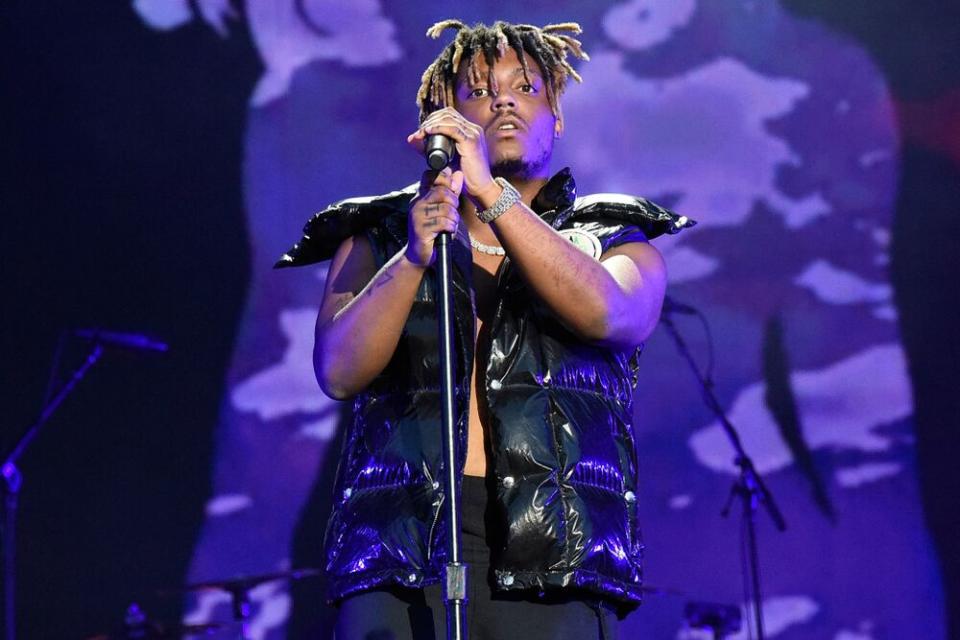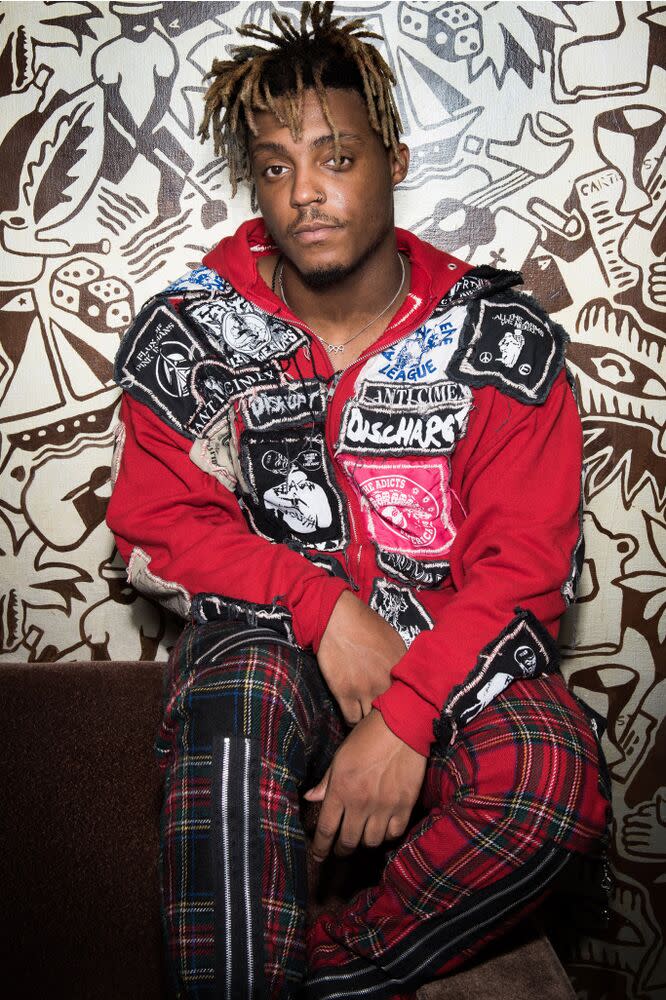Juice WRLD Died of Accidental Overdose of Oxycodone and Codeine: Coroner
Juice WRLD‘s cause of death has been revealed.
A toxicology report has determined that the 21-year-old rapper died of an accidental overdose of oxycodone and codeine, the Cook County Medical Examiner’s Office announced Wednesday.
“The Medical Examiner’s Office has determined the cause and manner of death of 21-year-old Jarad A. Higgins,” the office said in statement. “Higgins died as a result of oxycodone and codeine toxicity. The manner of death is accident.”
The Medical Examiner's Office has determined the cause and manner of death of 21-year-old Jarad A. Higgins.
Higgins died as a result of oxycodone and codeine toxicity.
The manner of death is accident.@JuiceWorlddd #Juicewrld— Cook County ME (@CookCountyME) January 22, 2020
The rapper, whose real name was Jarad Anthony Higgins, died on Dec. 8, shortly after having a seizure at Chicago’s Midway Airport, according to a report from TMZ, which first reported on the news.
The outlet reported that the rapper remained conscious while en route to a local hospital, where he died shortly after.
A spokesperson for the Cook County Medical Examiner’s Office previously confirmed to PEOPLE that he was pronounced dead at 3:14 a.m. at Advocate Christ Medical Center, where the autopsy was later performed. In a statement released Dec. 9, the Cook County Medical Examiner’s Office said that “additional studies are required to establish the cause and manner of death. The cause and manner of death are pending at this time.”
RELATED: Drake, Travis Scott, Halsey & More React to Juice WRLD’s Death: ‘You Were Just Getting Started’

RELATED: Everything to Know About Rapper Juice WRLD After His Death at 21
The artist celebrated his 21st birthday on Dec. 2, just under a week before his death.
In his last Instagram post, which was shared on his account earlier this week, the rapper said that he planned to celebrate his special day “all week.”
In the wake of his death, TMZ reported that the private jet he was riding on carrying 70 pounds of marijuana and a bottle codeine cough syrup. Juice WRLD’s friends on the plane told the outlet that the late star repeatedly took the drug Percocet, and had been seen taking pills shortly before his fatal seizure.

Ahead of his funeral on Dec. 13, Higgins’ mother Carmella Wallace gave a statement to TMZ, explaining that her son battled with a drug addiction, and that the family was learning to cope with the loss.
“We loved Jarad with all of our hearts and cannot believe our time with him has been cut short. As he often addressed in his music and to his fans, Jarad battled with prescription drug dependency,” the mother said in a statement.
She added, “Addiction knows no boundaries and its impact goes way beyond the person fighting it. Jarad was a son, brother, grandson, friend and so much more to so many people who wanted more than anything to see him defeat addiction.”
Juice WRLD often rapped about drug use in his songs, which his mother explained was in an effort to help others battling with addiction by letting them know they are not alone.
“We hope the conversations he started in his music and his legacy will help others win their battles as that is what he wanted more than anything,” Wallace said. “We know that Jarad’s legacy of love, joy and emotional honesty will live on.”
RELATED: Juice WRLD’s Family Breaks Their Silence Following Rapper’s Death: ‘Addiction Knows No Boundaries’

Juice first rose to fame in 2018, following the release of songs “Lucid Dreams” and “All Girls Are the Same.” That year he released his debut studio album, Goodbye & Good Riddance.
The rapper was also featured on a track “No Bystanders” off of Travis Scott’s album AstroWorld.
Last year, he released his second studio album, Death Race for Love, which debuted at the top of the Billboard 200 chart in March. He also joined Nicki Minaj on her Nicki Wrld Tour as an opening act.
If you or someone you know is struggling with addiction, please contact the SAMHSA substance abuse helpline at 1-800-662-HELP.


